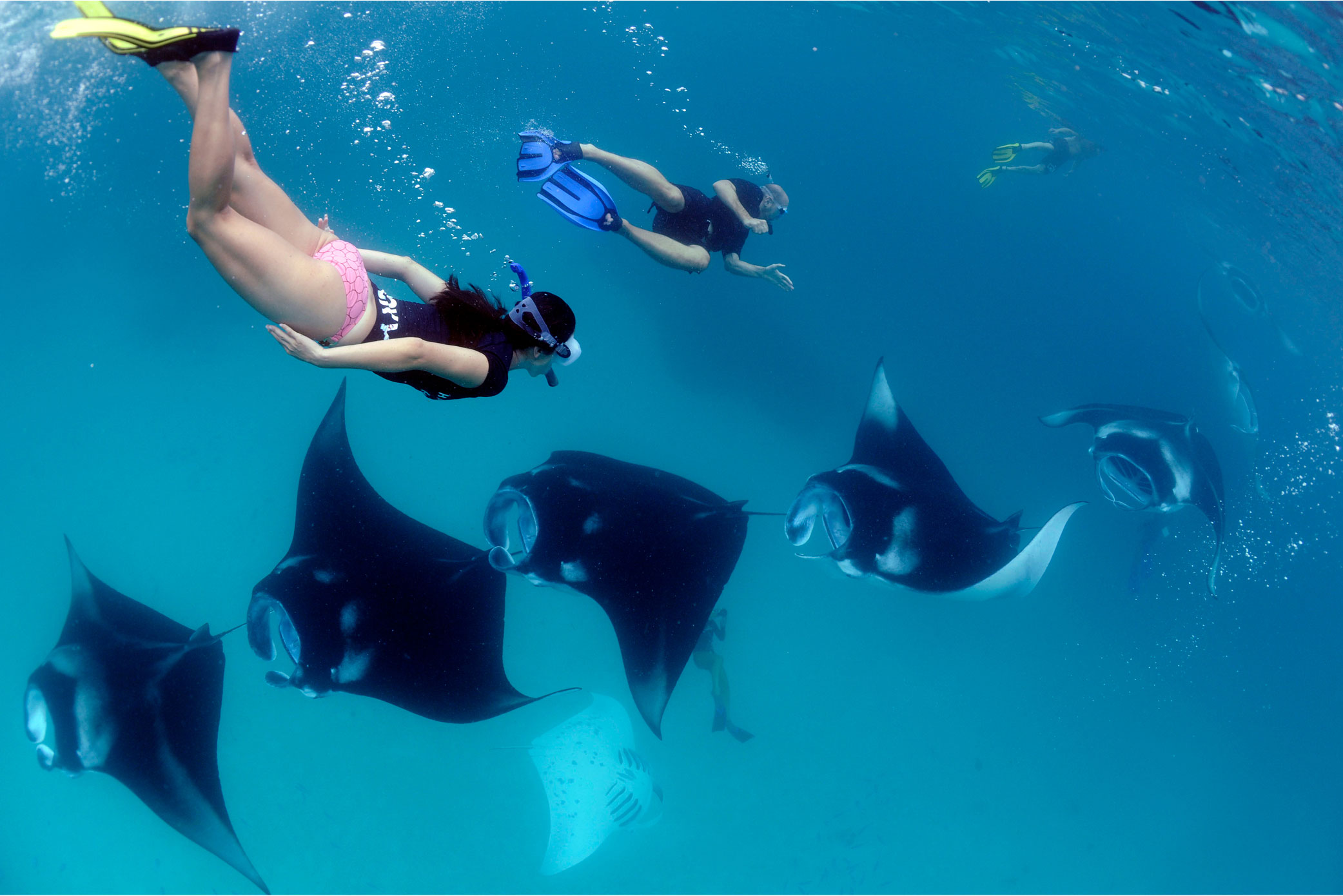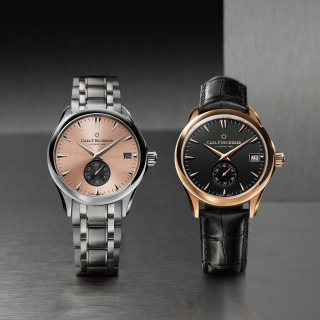MANUFACTURE MOVEMENTS, HIGH COMPLICATIONS, CUTTING-EDGE STYLE
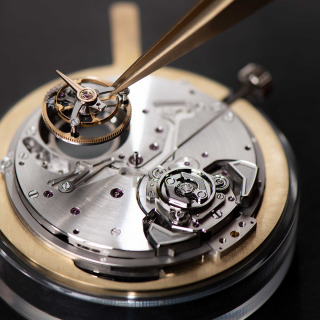
To share some insights about the ongoing research expedition in partnership with the Manta Trust with you, the internationally acclaimed journalist and writer Robin Swithinbank...
To share some insights about the ongoing research expedition in partnership with the Manta Trust with you, the internationally acclaimed journalist and writer Robin Swithinbank is taking part in the everyday routine on board and shares the latest results directly from the Maldives. See his latest update below:
“It had always been a big wish of mine to have a boat like this so we could visit areas we can’t normally get to,” says Guy Stevens, founder and chief executive of the Manta Trust.
For the last two weeks, Guy and his international team of scientists have been navigating the outer reaches of the Maldives in search of manta rays, on a boat funded entirely by Carl F. Bucherer.
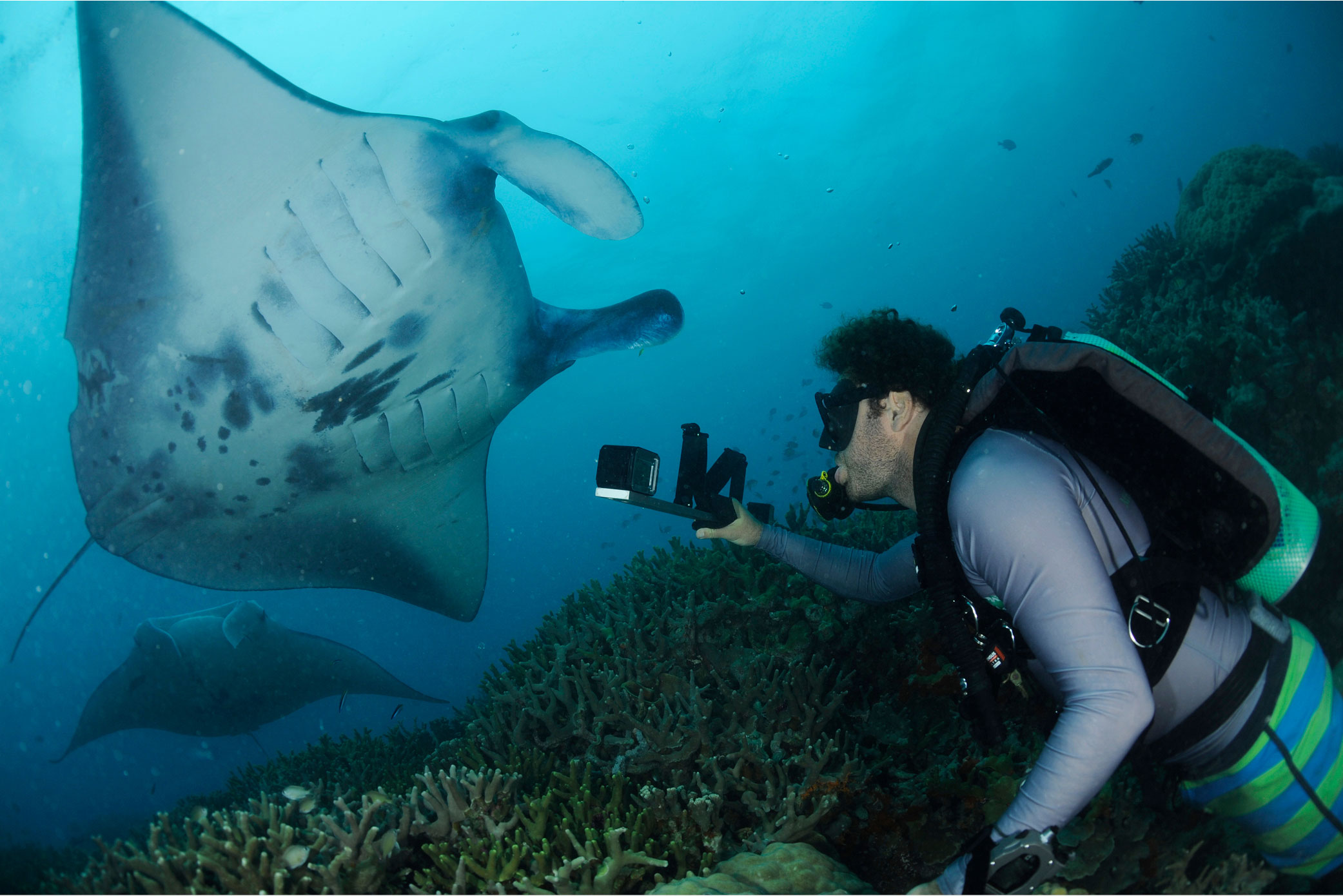
Guy is eager to talk about how the mission supports “conservation ecology”. This is about understanding manta populations, gathering information on the age, size, maturity and reproductive fecundity of individual animals. From that, the trust will know more about manta life history characteristics and survival rates, how long it takes them to reach sexual maturity, how long they live and more. A manta is expected to live around 40 years.
One interesting detail emerges. Research has shown that during mating, the male manta holds the female’s left “wing” using ridges at the back of its mouth, scarring the female. But it’s not yet clear how a female chooses her mate. Observations indicate she mates multiple times, perhaps to create competition for sperm. But no one’s sure. “More research is needed,” says Guy.
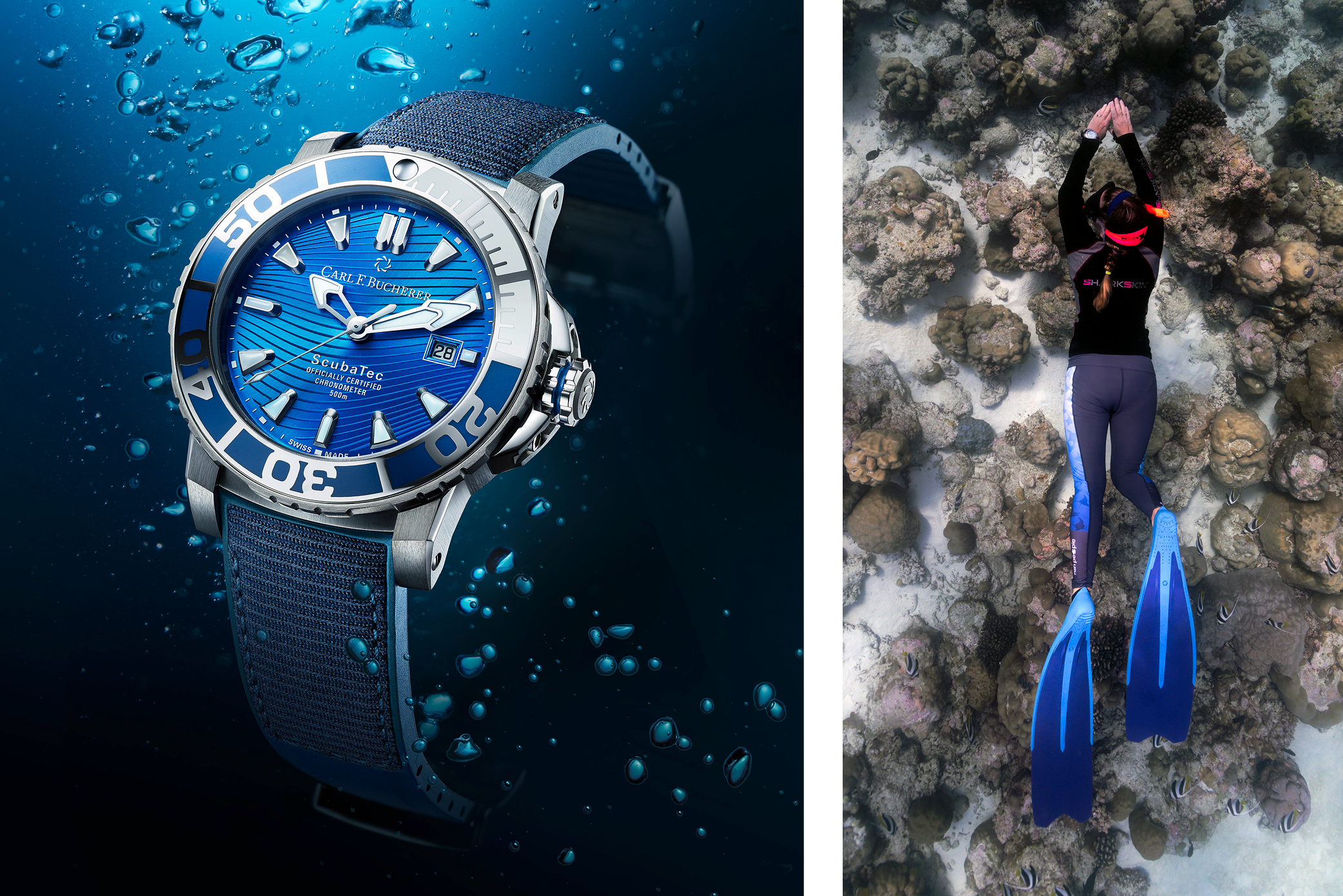
At a less granular level, even now, the scientific community isn’t agreed on the number of manta species. Some say there are nine, but the Manta Trust has identified 11. “There’s some bad science out there grouping manta species,” says Guy. “The effect of this is that the conservation effort is reduced. Each species has its own vulnerabilities.”
As the 17-day expedition comes to an end, findings will be assessed and conclusions drawn – conclusions that can be applied to manta conservation all over the world.
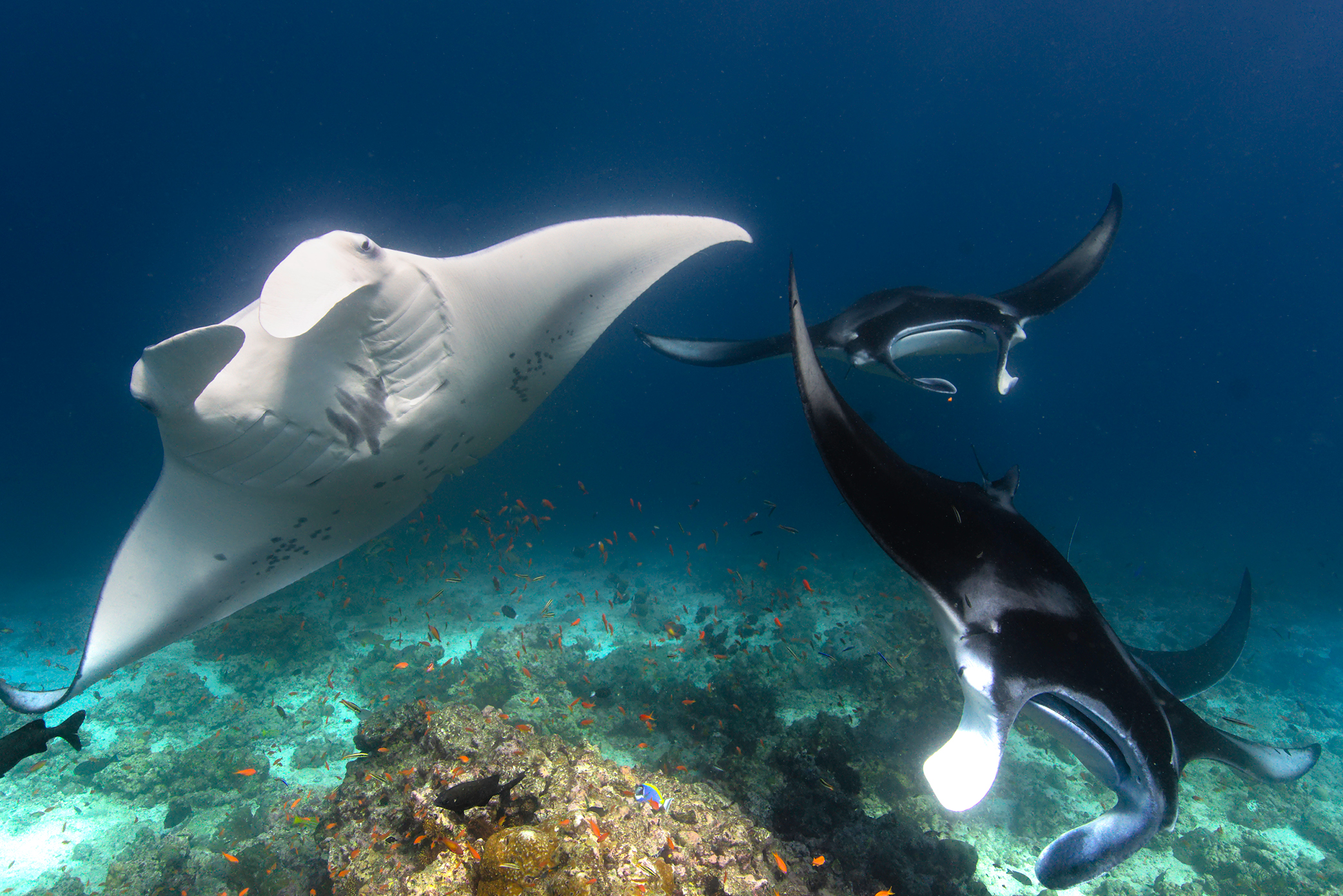
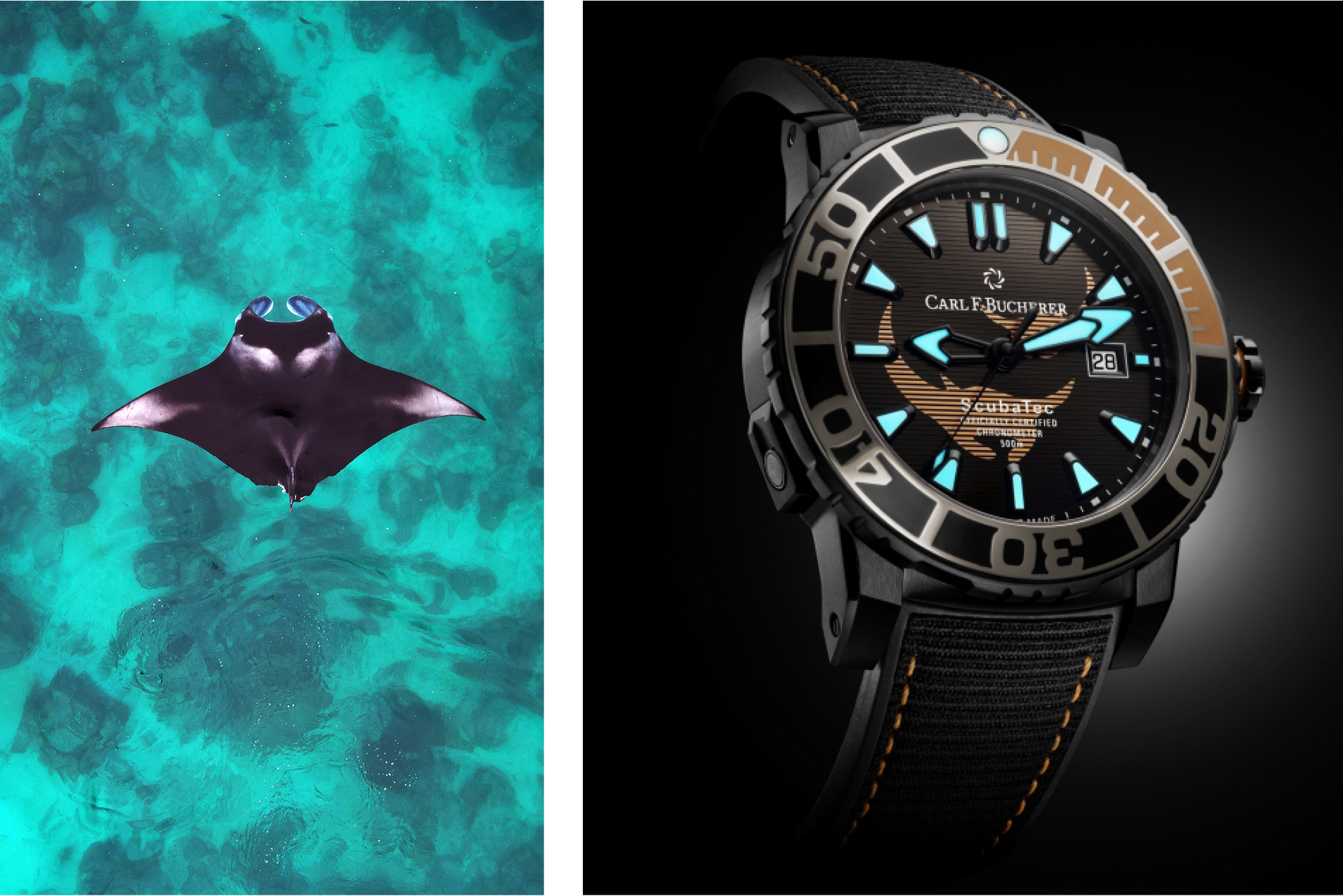
The sense of anticipation that builds ahead of each dive on board the Conte Max, the “liveaboard“ boat chartered by Carl F. Bucherer and turned by the Manta Trust into a floating research vessel for a 17-day expedition around the Maldives, is palpable.
Each dive might yield a manta sighting – but there’s no guarantee. Mantas are solitary creatures, and always on the move.
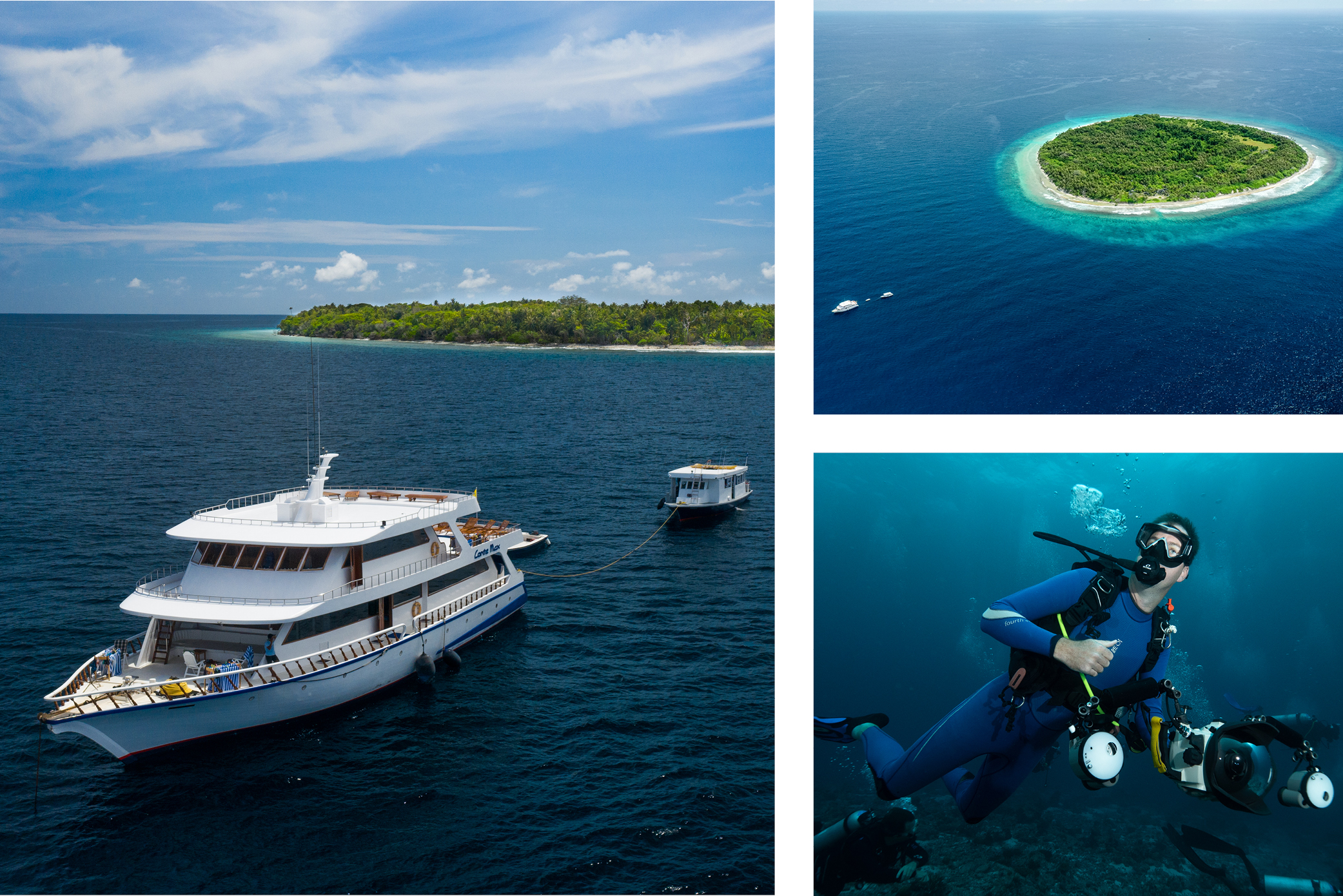
Every manta we find will help fulfil one of the expedition’s goals to add to the trust’s manta database. Currently, it has 5,100 individuals and counting. Once the trust’s researchers have logged a manta, they can observe it, recording information that details how these majestic animals feed, mature, reproduce, migrate and much more.
But the first job is to find them.
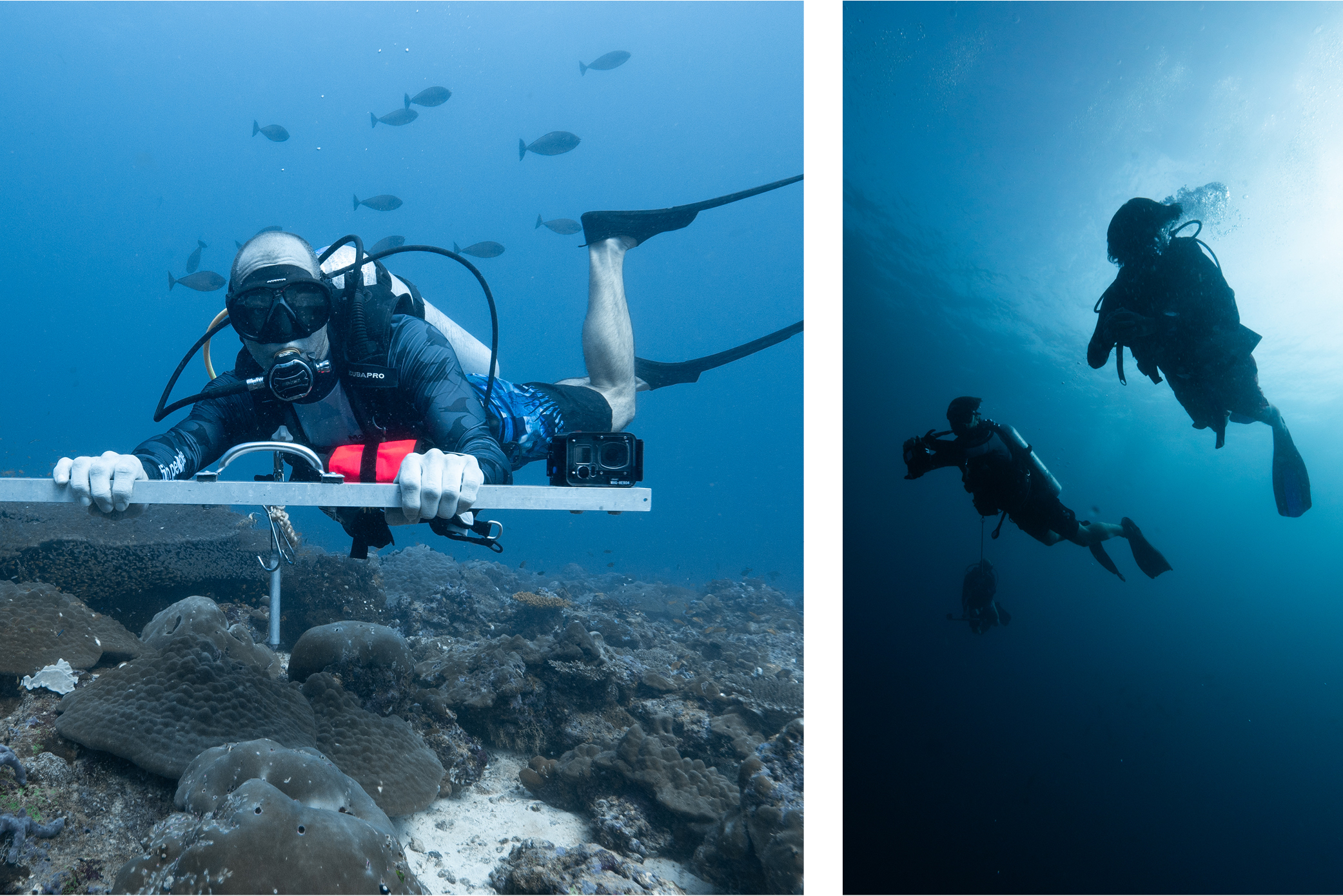
When at length we do, it’s into the water, camera in hand, and then a dive below the manta so we can photograph its belly. Every manta has a unique spot pattern on its ventral side. One morning, we capture a juvenile male with two dominant spots. A review of the database reveals this is the first time he’s been ID-ed. Make that 5,101.
Every manta logged helps build the picture. And the clearer the picture the easier it will be to continue the trust’s mission: to conserve this magnificent marine species and its habitat.
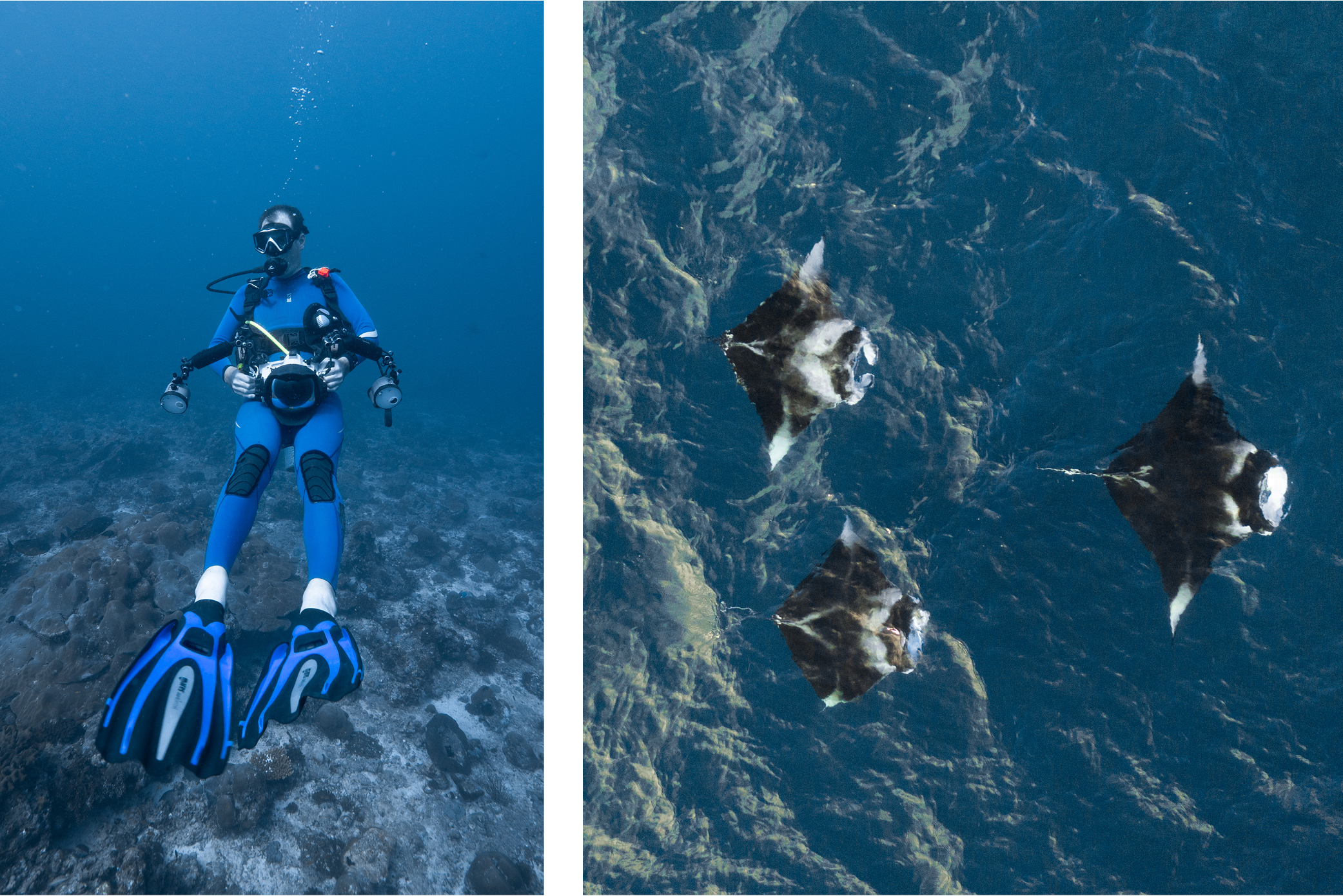
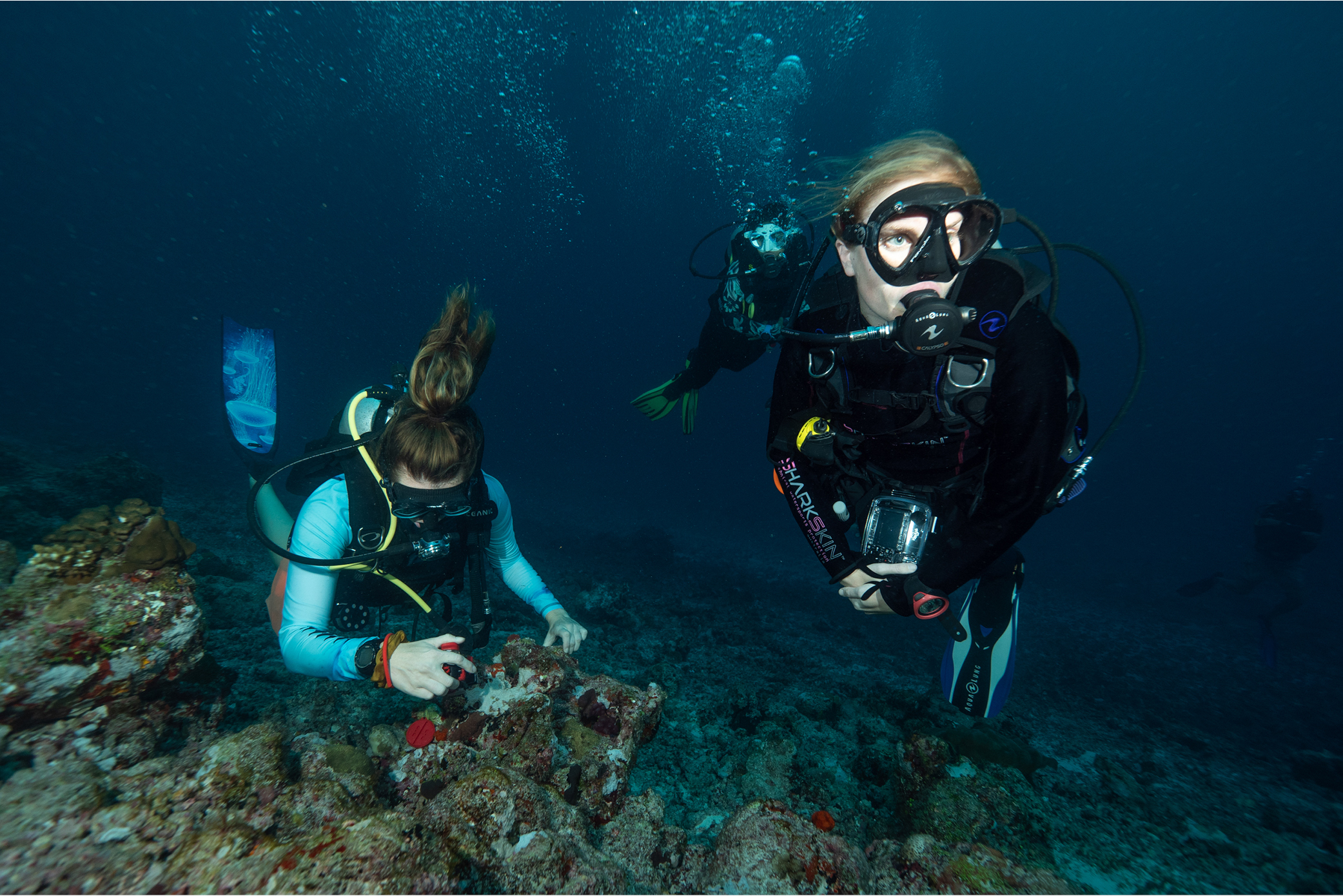
Talking with the Manta Trust team, it's quickly apparent how important this floating research vessel - a boat chartered by Carl F. Bucherer for 17 days and on which I’m staying for three - is to its activities.
The Maldives cover a vast area, more than 750km top to bottom, with some 1,200 islands across 26 atolls. The trust's Maldivian bases are mostly around the central islands, from where they can conduct nearby research. But getting to the north is harder. Much harder. Fewer than a thousand of the 80,000 manta sightings across the Maldives have been up here.
The team are loaded with research equipment. Cameras, drones and GoPros are familiar enough, and then there are ultrasound devices to measure maturity and female pregnancies (manta gestation is a whole year). Less recognisable, in name at least, are the ‘stereo video photogrammetry’ devices for measuring the wingspan of these majestic creatures - fully grown, Maldivian reef mantas can grow up to four metres across.
The mission? To learn more about where mantas gather and breed, and to photo ID individuals so they can be added to the Manta Trust database. There are more than 5,000 mantas on it to date. And the more these guys know, the more effective conservation efforts will be.
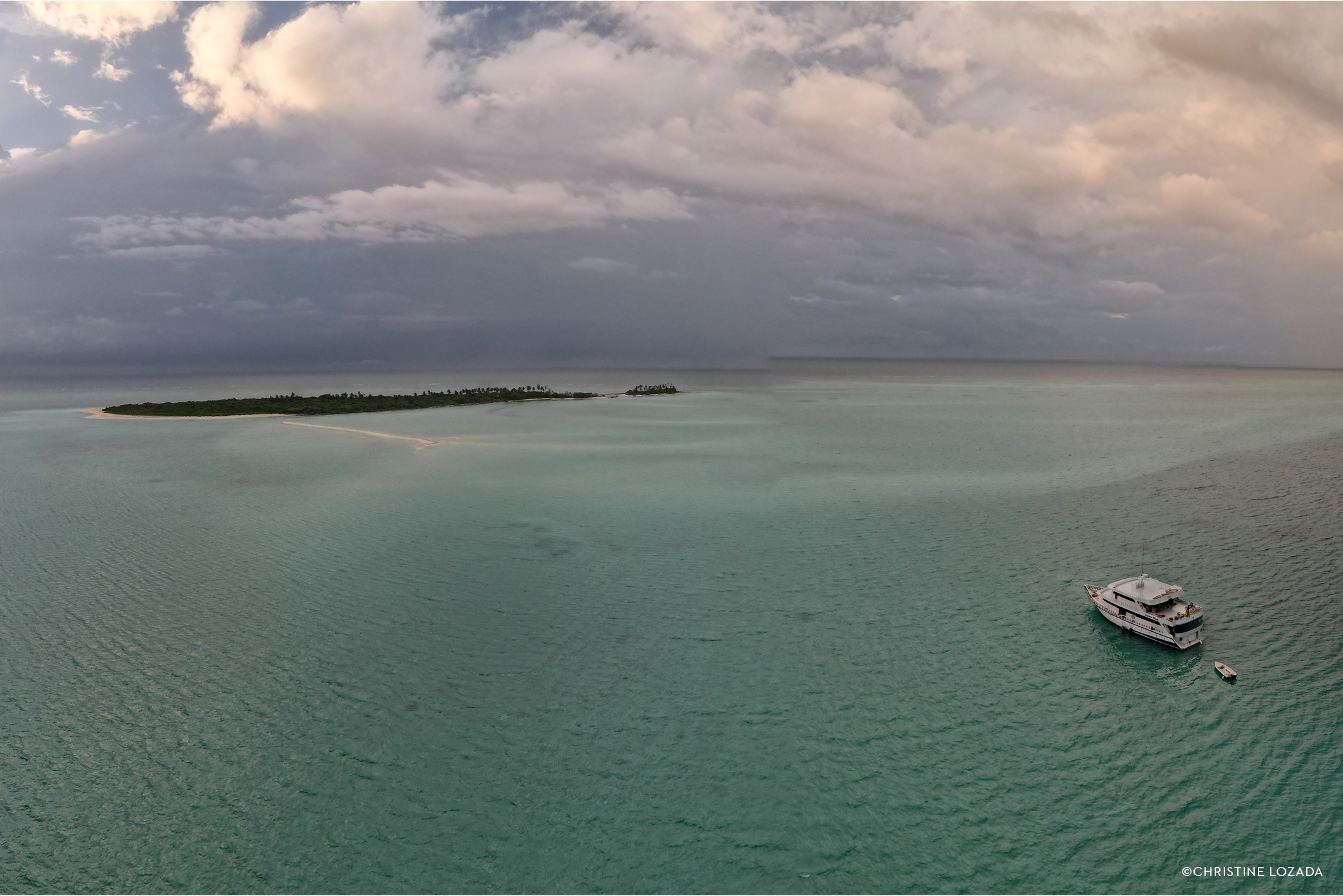
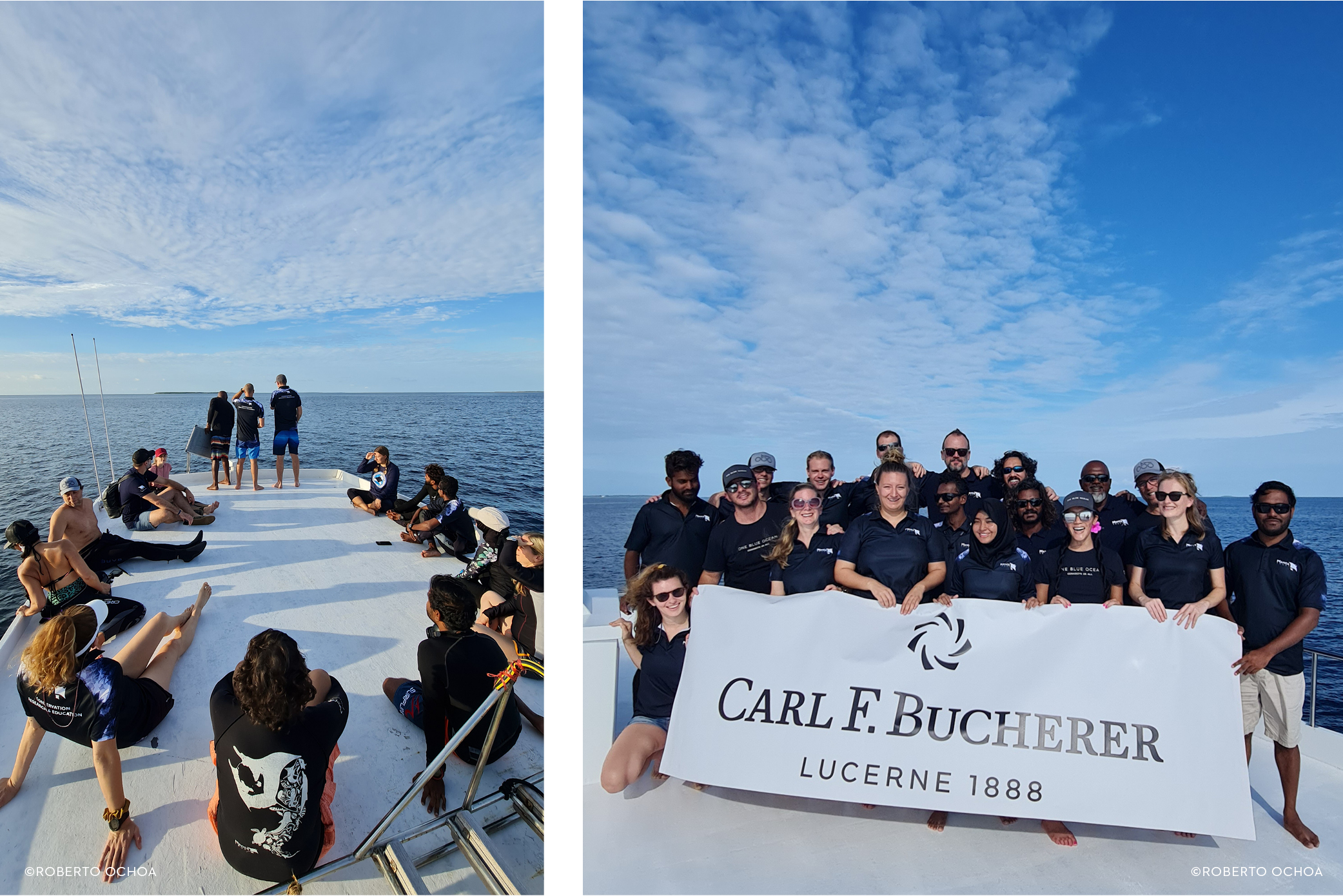
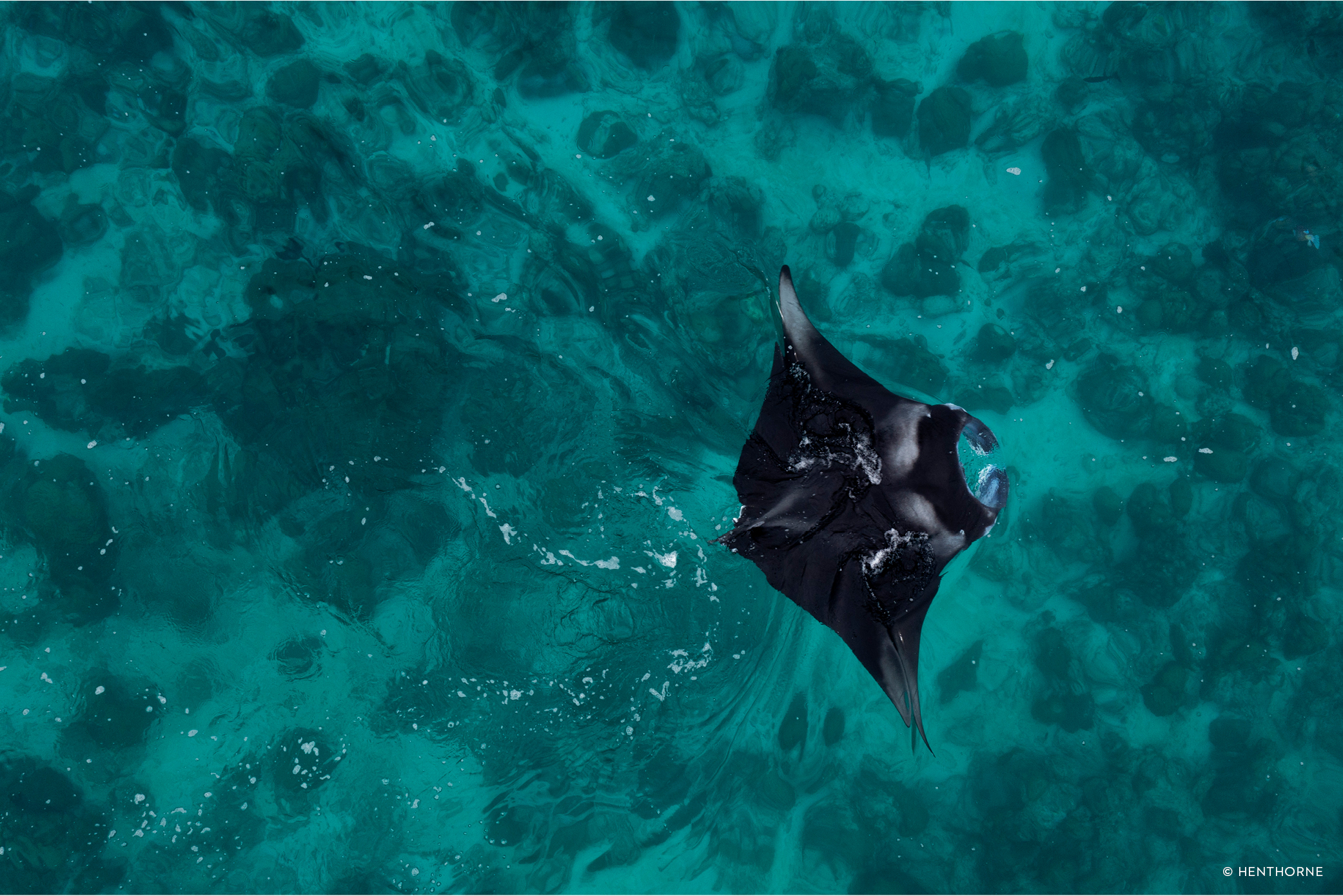
Since 2013, we have proudly supported the work of the Manta Trust, a non-profit organization committed to the preservation of manta rays and the eco-system they need in order to survive. We are currently financing the most ambitious project yet: a “floating research station” that allows manta specialists to explore the remote northern atolls of the Maldives where they can discover new aggregation sites and nursery grounds and add hundreds of new individuals to the Maldives manta database.
The large skill-varied team of international experts on board can focus on a wide variety of research and education aims, from population ecology to habitat use, migration behavior, community engagement, historical knowledge, and much more. It will also provide a rare chance for the Manta Trust’s disparate team to spend several weeks together in person. This offers a precious opportunity for friends and colleagues to share ideas and learn from each other, allowing them to conceptualize new conservation strategies, and brainstorm ideas for furthering manta ray research and education efforts both within the Maldives and globally. We are thrilled to be able to make it happen.
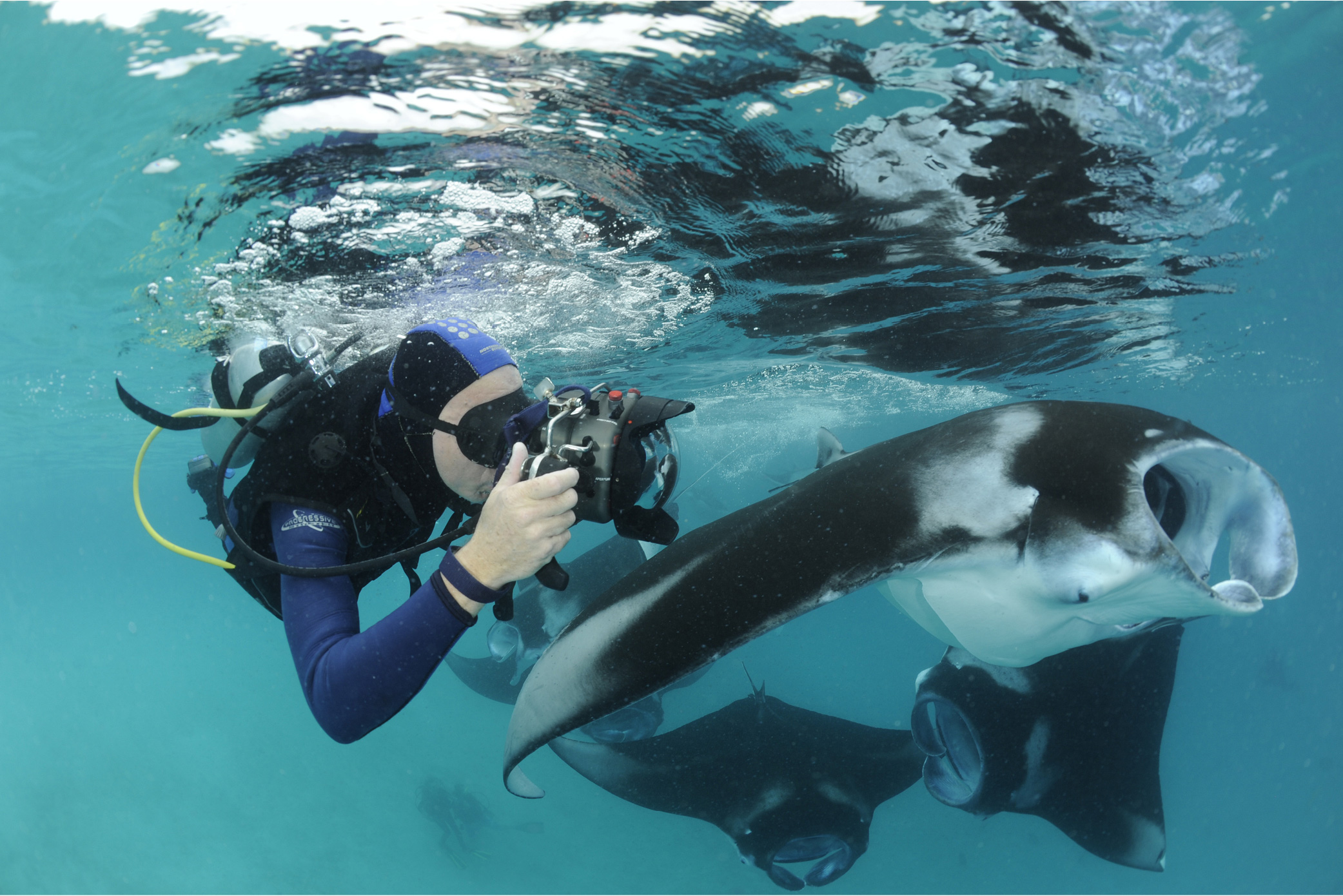
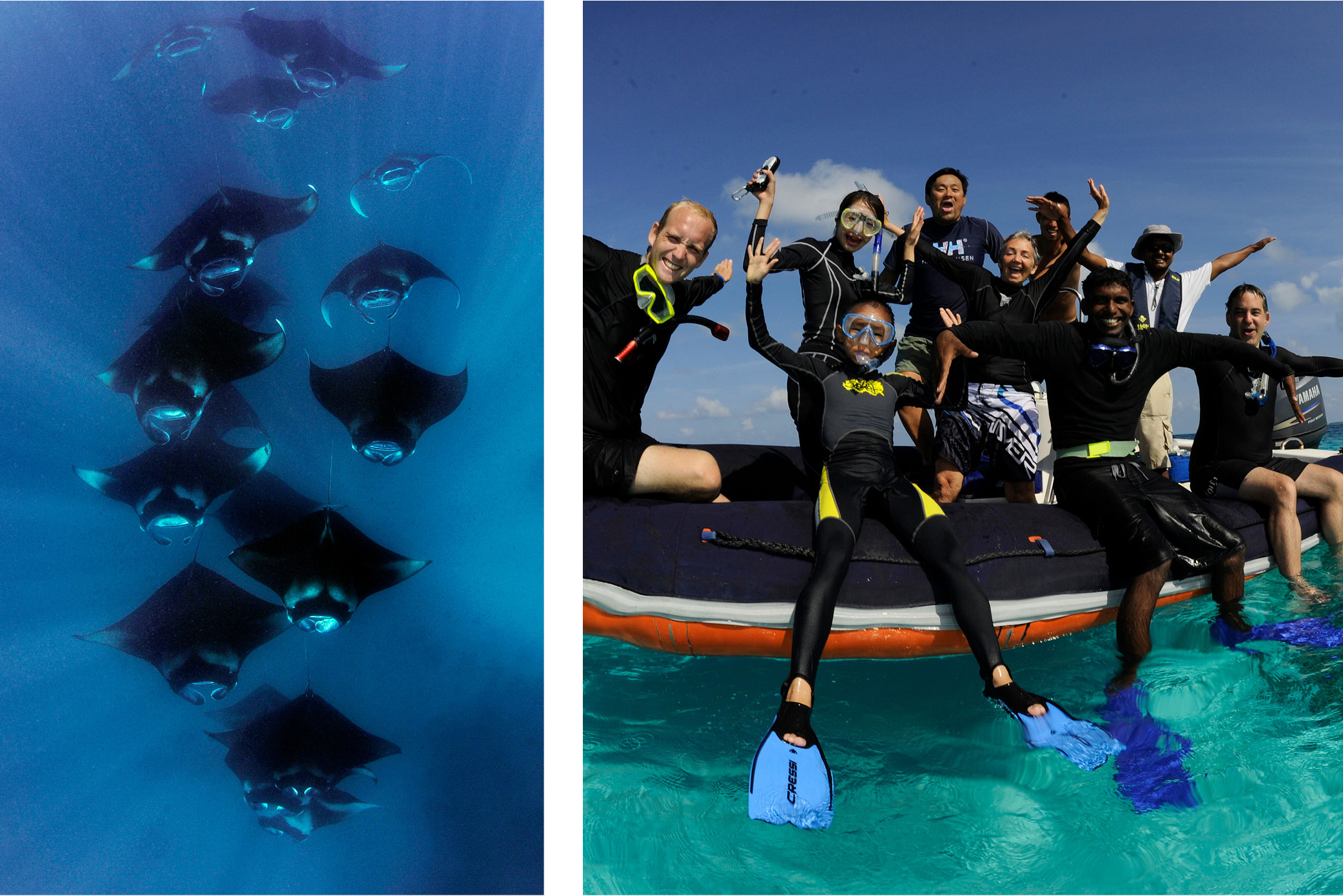
We are proud of our long partnership with the Manta Trust, a non-profit organization committed to the preservation of manta rays and the ecosystems these incredible – and threatened – creatures need to survive. With funds generated in part by the proceeds from sales of special editions of our Patravi ScubaTec watch, we sponsor projects each year including: identifying a critical migratory corridor (Pacific Mexico in 2015); the How to Swim with Mantas film (2016); a study intriguingly called “You are what you eat – finding the food of giants” (2017); a Maldives Marine Education Programme (2018), Searching For Shadows: Uncovering The Secrets Of The Caribbean Black Morph Manta Rays (2019); and the Opportunity of a Lifetime (2020), which funded a floating research station. And in 2021, partly through the sales of the Patravi ScubaTec Maldives, Carl F. Bucherer can support the Manta Trust by financing its new research expedition in the Maldives, focusing on, among other things, the population ecology of manta rays. We look forward to continuing its support for the Manta Trust and raising awareness of this incredible organization’s work.
Learn more about the Manta Trust’s projects sponsored by Carl F. Bucherer here (PDF).
